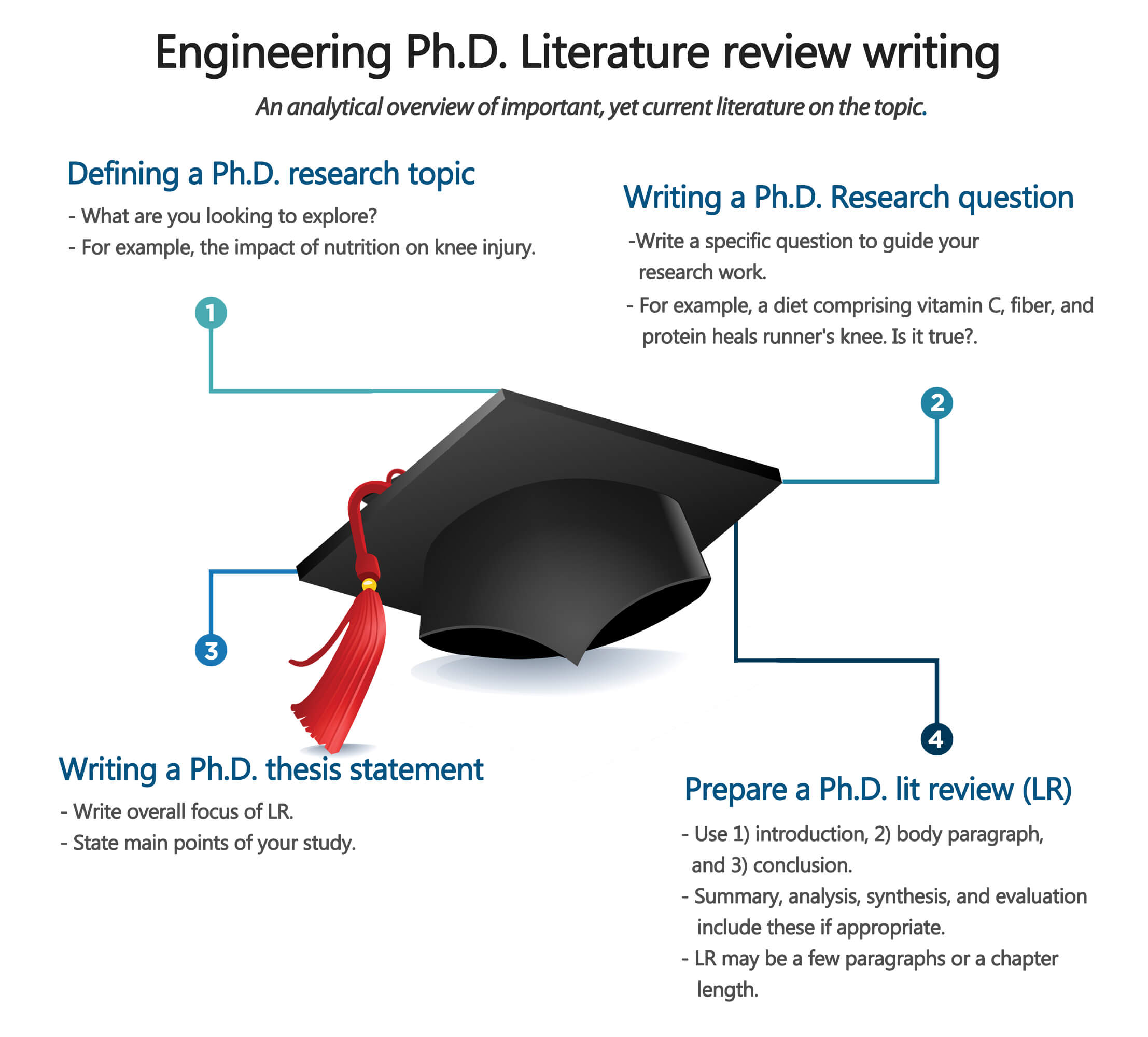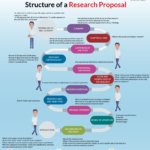Writing a Literature Review and in Need of Help? Consider These Tips From our Experts at PhD Assistance.
Contemplating a literature review? Remember these sage tips from Ph.D. dissertation help guides.
|
Follow these tips to portray your ideas while doing a PhD literature review (Jensen):
-
Juxtapose the views of different authors, i.e., compare and contrast.
-
Appraise previous research work.
-
Divulge gaps in existing research.
-
Elucidate the relationship between your work and those of the bygone.
-
state problems, conflicts, debates, gaps;
-
define a research area in a new way;
-
Scrutinize earlier studies’ results.
Structuring your PhD literature review properly is paramount for a fair reading experience to your readers. One of the ways you can structure the review is chronologically listing the sources in the order of their time of publication. Or you can follow a thematic structure wherein the sources are clubbed based on various criteria like concepts, topics, significance, and relationship to the work in progress, etc.
Sections in literature review
Include the following in your writing:
-
Summary of the subject, issue, or theory in investigation.
-
Categorization of sources based on agreement or contradiction to a position.
-
connections between the sources;
-
Conclusions on significant contributions;
-
Development of the subject.
A literature review is a comprehensive study of existing knowledge in a field of study. For a scientific and academic writing, an analytical overview of the significant literature related to your topic is what is expected from you. Your objective for your review will depend on your readers. Your review can be instructional if your readers are not experts in the topic. But, since you are doing a PhD literature review, you will be required to do a demonstrative review, portraying your familiarity, expertise, and intelligence on the topic as your review will be a part of the dissertation that will be subjected to scrutiny by the experts in your subject.
When writing a dissertation literature review, consider the following to elucidate a concise and clear vision to your readers:
-
juxtapose your original work in the context of current literature;
-
analyze and explain the major issues surrounding your topic;
-
Portray the interconnectivity among each of the research publications;
-
ascertain novel ways to interpret;
-
clarify and address any gaps in previous research;
-
clear the air on contradictory erstwhile studies;
-
sort out literature that has a major contribution to your research; and finally,
-
draw a roadmap for further research on your topic.
The substance of the literature review
In order to structure your literature review prudently, consider the flow of ideas logically from point to point. Cite only current and relevant sources. Ensure your references are appropriate to your discipline.
Present terminology and viewpoints on the topic in an unbiased and comprehensive manner
-
Provide an overview of the subject, issue, or theory under discussion;
-
split outside works into categories and concepts (in favor or contrary to a particular standpoint).
-
link the works to what has come prior to your work and ideas;
-
give conclusions about those works;
-
mention those that provide significant contribution.
Make the following considerations before including or not including a work
-
Value: The credibility and value of the author’s conclusion
-
Convincing: The credibility of each thesis and its persuasiveness.
-
Unbiased: Neutrality of the arguments
-
Credentials: the qualification and credibility of the source and the author.
Use transition words between points to analyze, synthesize, and assess external opinions. And use reporting verbs to communicate clearly; see the following examples:
-
-
To attack, condemn, object, and refute, use critical assessment;
-
To allude, believe, hypothesize, suggest, use tentative evaluation;
-
To advocate, argue, hold, and see, use positive evaluation;
-
To address, cite, comment, look at, use neutral evaluation.
-
Citations in Ph.D. literature review
Your presentation of the evidence or material in the literature review needs to show that you are
1) selecting and mentioning only the most relevant material;
2) explaining the quotation in light of your argument;
3) introducing and integrating only relevant quotations;
4) focusing on the language of quotations in the interpretations.
Use citations to locate your research in a larger narrative. The meticulous use of citations reveals your decisions to give greater emphasis to either the reported author/message. Integral citations (non-parenthetical citations) are those where the name of the cited author occurs in the citing sentence. Non-integral citations make reference to the author within parenthesis or through end or footnotes.
Your ideas are the focal point of your writing; But in scientific writing aligning your work with previous research is necessary to illustrate its relevance and gravity to the topic.
To conclude, the following is a summary of the key tips
-
summarize key research by stating arguments and main points;
-
analyze by examining the elements or structure of the research;
-
synthesize or combine ideas to form an integrated theory via critical evaluation, comparing and contrasting;,
-
evaluate and apply to topic based on the criteria you choose;

 Next Post
Next Post
